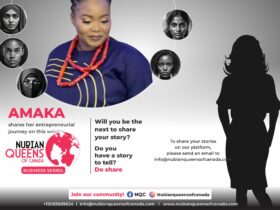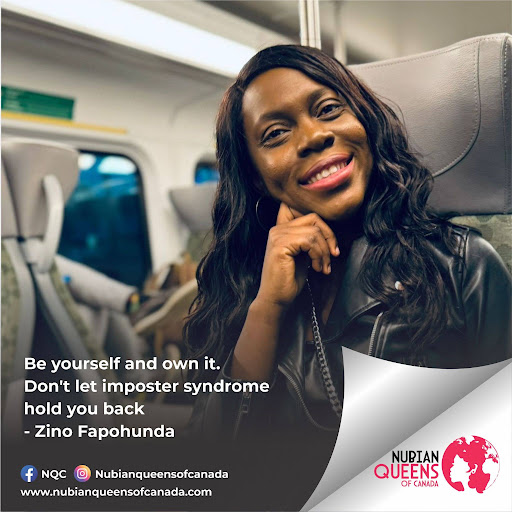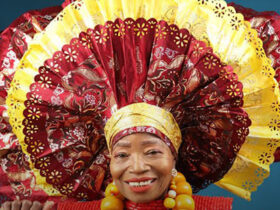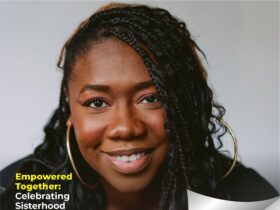Zino Fapohunda relocated to Canada from Nigeria in 2018. As a digital marketing professional, she soon discovered that her experience in digital marketing was only partially applicable here. She embarked on training and self-development programs, but despite this, she was fired within one year of starting her first job. Despondent and desperate, she began applying for jobs and reached the fifth stage of the interview with a startup firm. Despite praying and believing, she got an email saying they would not proceed with her application. She then did something crazy. She wrote to the company and told them she would work for free and just needed two months to prove herself. She was given the opportunity and placed on a starting salary. She went ahead to spend a year at this company and was given a promotion. Read her full story here:
The first year was the toughest for me. It was particularly humbling to discover that my particular expertise and skill set were only partially applicable to the digital marketing world in Canada. Coming from Nigeria, I was a guru in my field but felt like a fish out of water here. I began taking courses to improve myself and upskill to fit into the Canadian digital marketing field, but despite this, I was still fired within one year. This was a rude awakening, and I was more determined to make my way in this field.
In time, I got another job where I proved my worth, and then I started getting other job offers, and I have begun to grow and thrive in my field. I began to adapt well at work and tried to understand and blend into the culture of making small talk at work. So my colleagues would tell me how they spent their weekend camping, fishing or hiking, and at first, it was strange and so far removed from what I usually would consider a hobby. I was lost during these small talks because I could hardly relate to their version of hobbies, but after listening, I would tell them how I spent my weekend, and we would compare notes and discover fun areas. My colleagues still tease me because I still won’t agree to go hiking with them. The weather was easy to adapt to; I dressed to stay warm, which helped. Another thing that helped me adjust to my new life here in Canada was the presence of family and friends. When I lost my job, I stayed with my cousin for a week, and she encouraged me to be strong and start applying for jobs again.
Getting fired within one year of starting a job was a unique experience for me. I had just gotten a house where the rent was $1,700, and I didn’t know where the money would come from. I kept applying and kept getting rejection emails. Within two months of continuously applying, I applied to a startup firm where I made it up to the fifth stage of the interview; I was hopeful but got another email saying they wouldn’t be moving ahead with the interview. I was shattered. Then I did the craziest thing and wrote to them, saying I would work with them for free and that they should give me two months to prove myself. They came back to me saying I shouldn’t work for free, and they placed me on $40,000 instead of $80,000, which was the initial pay, and gave me two months to prove myself. I went ahead and worked for this company for a year, and I also got a promotion. It was an amazing time for me.
I also found my passion in Canada. I have created a WhatsApp community for Nigerian immigrant digital marketers. I put the group together to teach people how to get jobs in this space. I also started a girls’ club for immigrant girls in Ontario, where we coach young girls about adapting to their new environment, help them make new friends, and mentor them in making the right decisions and shunning negative peer pressure.
Looking back, I wish I had done somethings differently. When I first migrated, I felt insecure and had a bad case of imposter syndrome. I felt intimidated by people who were established and born here. I did not project my uniqueness as I should have, denying myself the opportunity to leverage my diversity as a stepping stone to excel. I was not confident enough to speak at meetings because of my Nigerian accent; I did not feel secure enough to share my ideas at board meetings because I feared that my ideas were not good enough and I would not be understood due to my accent. However, I now present ideas at board meetings and speak in front of senior directors because I am very confident in my abilities and ideas. I don’t care about my accent as long as I add value and share viable ideas.
I wish I had not had imposter syndrome during my first three years in Canada. I wish I had projected myself in all my uniqueness and glory and was more confident. At this time, I met someone who said that their superpower working in Canada is the fact that they are black and Nigerian and also the sum of their experiences that they bring to the table. So, I knew instinctively that I did not lack analytical abilities, intelligence or unique experiences, but I was too afraid to share this side of myself.
My advice to women of color who are migrants is to be bold and not afraid. Don’t be afraid to share your uniqueness and authentic self because therein lies your strength and competitive advantage. Believe in yourself and project everything that you are: your skills, your humor, your beauty, your accent, your brains—show them off maximally because you are way more than you think that you are. Improve yourself and know that you are beautiful and unique.
Be you, do you, and put your mental health and peace first.
















This is a very inspiring story . Thank you so much for sharing!
You are very much welcome
Good and impressive write up, God bless you
A very big lesson to learn 👌 great decision .
This is a very inspiring story. I am also a digital marketer and we just recently moved to Canada. I will be glad if you can add me to the WhatsApp group you created for digital marketers. We will love to learn and be coached on getting jobs.
I’m frequently to blogging and i really recognize your content. The skill has actually peaks my interest. I shall bookmark your web sites so you don’t have to stop checking for new information.
I used to be more than happy to find this internet-site. I desired to be pleased about this glorious read!! I undoubtedly enjoyed every number of it and I have you ever bookmarked to check out new stuff you blog post.